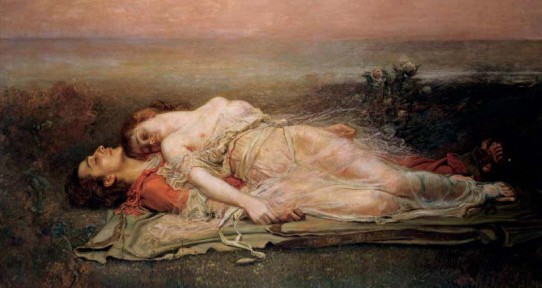After the two long discussions on this fascinating topic, I would like to offer the following as my final word on the subject (hopefully!):
The world is brahman – sarvam khalvidam brahma. So we can say that the cause of the world is brahman (and shruti does say this!). The cause is not ignorance. It is because of ignorance that we see the world as separate objects and people but that is not the same thing. Yes, we superimpose ‘things’ upon the non-dual reality. That is adhyAsa. But that is not the ‘cause’ of the world. Ignorance is absence of knowledge and the world could not arise from an ‘absence’ or nothing. Brahman is the cause and, for the sake of ‘explanation’ we posit that it does so via the power of mAyA. Even so, the world is nothing other than Brahman, since Brahman is both material and efficient cause.
Ignorance is not the cause of the world; it is the reason that we fail to realize that the world is Brahman. When that ignorance is removed, the realization dawns; but since it had nothing to do with the appearance, the world does not disappear when the ignorance goes. If the (appearance of the) world had not been there to begin with there would have been nothing for us to superimpose upon. It was and remains mithyA – dependent upon Brahman for its reality. When we gain Self-knowledge, what goes away is the ignorance, not the world.

